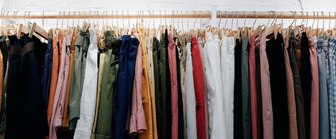Consumers globally now have product pricing information at their fingertips. Whether they’re shopping in-store or online, they can hop onto the internet to get a peek at prices before deciding which medium to conclude their purchase. And a new multi-country YouGov study reveals that the prices of household goods listed online is likely to be a major influence on which way consumers turn.
Two-thirds of global consumers in 17 markets in the study say they look up prices online before deciding to purchase online or in-person (66%). However, there was sizeable variance in the extent to which people compare the prices of household items across the world.
In general, large shares of consumers in Asia appear to be online-savvy shoppers and frequently check the price of household items before making their purchase decision. Indonesia, India, UAE and China topped the list in terms of agreement levels, with at least four in five consumers saying they check prices of household products online beforehand. On the other end of the spectrum, less than half of those polled in France, Germany and Denmark agreed with the statement.
We can also examine the difference in agreement levels of different age groups toward this consumer shopping behavior. In the US, more than two in three (68%) consumers aged 45-54 say they often look at prices of household items on the internet before deciding to buy online or in-store. Those in the youngest bracket (18-24) showed the least tendency towards the same, but even so, half of young consumers (50%) agree they check for prices online.
The 45-54 age bracket topped the list in Great Britain with three-quarters (76%) of consumers agreeing with the statement. But similar levels of agreement were found in the 25-34 and 35-44 age groups, with 75% of consumers in each bracket indicating agreement.
Looking at the data by age in Australia reveals a different trend entirely. Two-thirds (66%) of consumers in the 45-54 category agreed that they look up prices online before making a call, but this age cohort actually shows the lowest level of agreement for online price checking in the country. Three in four Australians aged 35- 44 say they check prices online before making their purchase decision (75%) and Australians aged 18-24 and 25-34 age brackets also showed high levels of this behavior (70%.)
It’s clear that consumers rely on pricing information even if they eventually plan to buy household items in-person. This consumer preference for price checking means physical retailers should continuously monitor and update prices online, even if they don’t offer the ability to pay for items over the web.
Methodology: The data is based on the interviews of adults aged 18 and over in 17 markets with sample sizes varying between 508 and 2019 for each market. All interviews were conducted online in April 2021. Data from each market uses a nationally representative sample apart from Mexico and India, which use urban representative samples, and Indonesia and Hong Kong, which use online representative samples.










